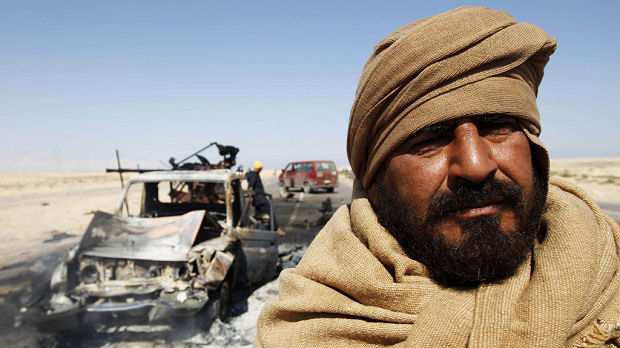Iraq and Bosnia haunt west’s Libyan intervention
Libya would have seen mass slaughter if the west had not gone in, writes Col Richard Kemp. But holding back from full-scale action means the allies are fighting with one hand tied behind their back.

Fighting Gaddafi was the lesser of two evils – as is nearly always the case in any decision to engage in armed conflict. The alternative: for the world media to watch as Libyans were slaughtered by their own government as the west did nothing.
In the minds of policy-makers there were premonitions of the accusations levelled against us as thousands of Muslims were massacred in Bosnia.
Undoubtedly those policy-makers knew they were entering a tangled mess. Again, that is almost always the predominant characteristic of conflict the world over. They would have realised that backing the Libyan rebels meant backing people who in many cases would in future present us with just as many problems as Gaddafi was doing now and had done for many years.
Undoubtedly policy-makers knew they were entering a tangled mess in Libya.
The Libyan Islamic Fighting Group, a key element of the rebellion, for example, is an affiliate of al-Qaeda. Balancing the certainty of mass slaughter by Gaddafi and enabling an al-Qaeda regime to hold sway over all or part of Libya was undoubtedly a tough call.
A decision taken in the almost certain knowledge that only a matter of months down the line comparisons would be drawn with arming the mujahaddeen in Afghanistan and the quagmire engulfing us now in that country. And in the knowledge that questions would soon be asked – as they are now being asked over Syria – on whether intervention would be our policy for every murderous, despotic regime in the Middle East.
The tipping point in the western decision to go in, and to obtain UN sanction, was the position of the Arab League, which was giving us the green light – a light, however, that predictably changed to amber after the action began.
The Arab League’s approval for western military operations against Gaddafi was an almost heaven-sent opportunity for the west, especially the US and the UK, to earn much-needed credit after the perceived fiasco in Iraq. Was oil a consideration here? Of course, it is a consideration in every decision taken over the Middle East.
That our intervention in Libya has not yet had as decisive an effect on the opposition’s military success, or as strong a psychological impact on Gaddafi’s followers, as might have been hoped, is in part a product of the perceived fiasco in Iraq.
The US has been determined to be seen to be on the right side while at the same time holding back from the full-scale action so patently needed. That amounts to the western allies as a whole fighting Gaddafi with one hand behind our back.
Colonel Richard Kemp is former commander of British forces in Afghanistan and author of Attack State Red, an account of combat in Afghanistan. Follow him on Twitter @ColRichardKemp
